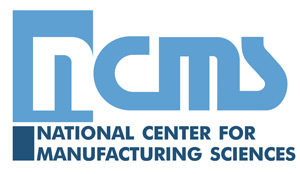Advanced Lithium Battery Technology Demonstration for Forklift Trucks – Phase II
NCMS Project #: 140895
Problem: The Department of Defense (DoD) is a great example of an organization that utilizes a large number of electric forklifts. The DoD Defense Logistics Agency (DLA) owns and operates large fleets of Class 1 & 2 forklift trucks for material handling purposes. Within DLA Distribution, 2,397 of these forklift trucks are electric, powered by very large lead-acid batteries. Typically, these lead-acid batteries are comprised of large format flooded 2-Volt cells utilizing tubular positive plate technology and flat plate negatives. While sufficient for low intensity warehouse applications, the 100+ year-old lead-acid chemistry has inherent deficiencies for high intensity, multi-shift warehouses and/or cold-temperature warehouse applications.
Benefit: Lithium-ion technology also allows businesses to do away with charging rooms, freeing up floor space for storage and operations. This is particularly beneficial when space is at a premium, or where property prices are more expensive. The batteries also require little maintenance or water refilling, and lead to much-reduced energy bills compared with lead-acid batteries. There is no memory and no scheduled cycling is required to prolong the battery’s life. Lithium ion cells cause little harm when disposed and cell materials have shown high ability for recovery and recyclability, so it is expected that lithium-ion recycling rates will rival lead-acid.
Solution/Approach: Utilizing the DDJC food warehouse as a test bed, this trial’s main objective is to quantify the benefits lithium has in cold storage over both lead-acid (performance) and propane (environmental/health). This Phase II trial will provide an additional case study with quantifiable analysis to support a broader DLA business case analysis, presenting several complementary contrasts to the Phase I trial being conducted at DLA Defense Depot Susquehanna, Pennsylvania (DDSP).
Impact on Warfighter:
- Improved readiness
- Smaller storage footprint
- Reduced maintenance
- Reduced environmental impact
DOD Participation:
- Defense Logistics Agency
- DLA Headquarters
- DLA Defense Depot (Susquehanna)
- DLA Defense Distribution (San Joaquin)
Industry Participation:
- Aerovironment
- Analytic Strategies
- Navitas Systems
- NCMS
Benefit Area(s):
- Cost savings
- Repair turn-around time
- Maintenance avoidance and reliability
- Positive environmental impact
- Safety
- Improved readiness
Focus Area:
- Energy, environmental, health, and safety
